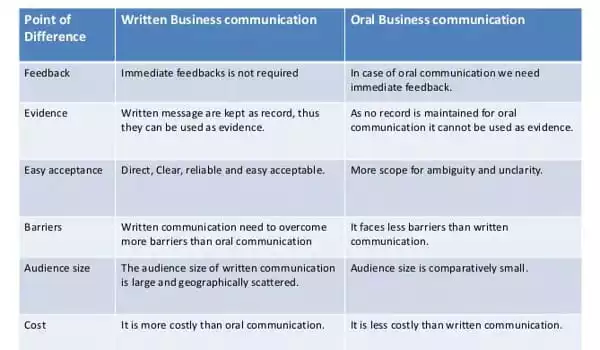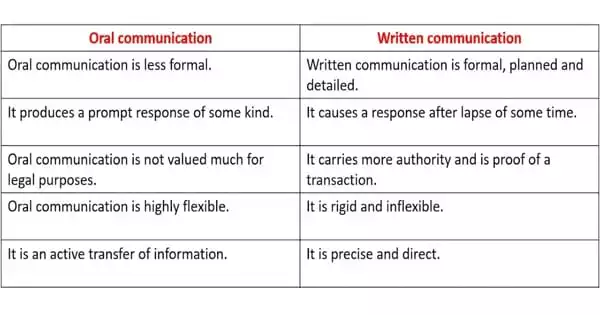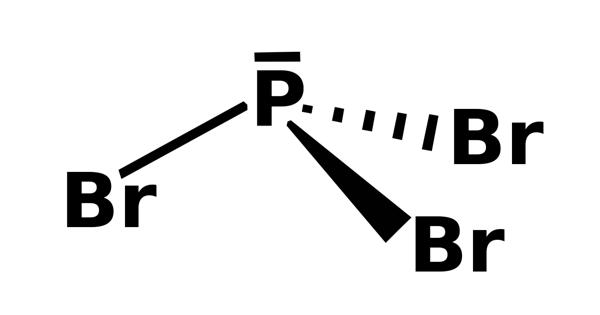Oral communication refers to communication that takes place orally. Written communication, on the other hand, is defined as communication that is made in written form using paper, pen, and printing.
Oral communication is the oldest form of communication and is most commonly used as a medium for information exchange. It entails gathering or disseminating information through the use of spoken words. Written communication, on the other hand, is a formal model of communication in which messages are carefully drafted and formulated in writing. It is kept as a reference or as a legal record.
Difference between Oral and Written Communication –
Oral communication
- Relation: A good relationship is created between the sender and receiver because of personal touch.
- Media: Telephonic conversation, face-to-face conversation, oral instruction, or order are the media here.
- Documentary Evidence: Oral messages or information are not preserved generally. So, it cannot be used as evidence for future purposes.
- Direct Means: Oral communication occurs directly between two or more people.
- Formality: Formalities are not so much strictly maintained in oral communication.
- Effectiveness: Distortion may take place in oral communication. In such a situation, it will not be proved to be an effective method of communication.
- Flexibility: Oral communication is more flexible! It can be easily changed and adjusted.
- Cost factor: Such communication is less expensive because it does not require a pen, paper, ink, printing materials, etc, to get the message ready for transmission.
- Feedback: Here immediate feedback is possible.
- Time factor: Such communication takes less time to send messages orally.
- Basis: Oral communication offers the basis for informal communication.
- IX Applicable: Such communication is applicable to the literate and illiterate receiver of the message.
- Starting: Such communication can be started instantly
- Correction: Correction is easily possible here because the sender and receiver face direct communication.

Written communication
- Relation: A good relationship is impossible here because the sender and receiver are isolated from each other.
- Media: Letters, memos, bulletins, drafts, reports, newspapers are the media for written communication.
- Documentary Evidence: Written messages are preserved so they can act as a permanent record.
- Direct Means: A direct link cannot be established here between the sender and receiver of the communication.
- Formality: Written communication needs formalities to be observed.
- Effectiveness: In written communication, the message cannot be distorted. As a result, real communication can reach the destination.
- Feedback: Feedback is delayed in written communication.
- Flexibility: It is a less flexible land, therefore, takes time to bring any change in the contents of the message.
- Cost factor: It is costly because pen, paper, ink, printing materials are required to get the message ready.
- Time factor: It is a time-consuming method because more time is required to get the message ready and communicate it to the receiver.
- Basis: It is the formal, method of communication because it is done in writing.
- IX Applicable: Such communication is applicable only to literate receivers.
- Starting: Various formalities are followed here and therefore involve a formal process to start such communication.
- Correction: Once the message is posted, it is beyond the reach, of the sender to correct the information if any mistake is found later on.
Oral communication is a type of informal communication that is commonly used in personal conversations, group discussions, and so on. Written communication is formal communication that is used in schools, colleges, and the business world, among other places. Choosing between the two modes of communication is a difficult task because they are both effective in their respective roles. People prefer oral communication because it is more convenient and takes less time.
















